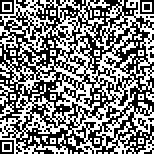| 引用本文: |
-
欧阳玉滢,林梅,王巧贞,卢波,吕心悦,黄俊,周蓉,梁士颉,覃秋容,王青艳,黄庶识,廖思明.耐热微泡菌Microbulbifer thermotolerans YLW106几丁质酶的基因克隆表达及酶学性质分析[J].广西科学,2024,31(4):731-741. [点击复制]
- OUYANG Yuying,LIN Mei,WANG Qiaozhen,LU Bo,Lü Xinyue,HUANG Jun,ZHOU Rong,LIANG Shijie,QIN Qiurong,WANG Qingyan,HUANG Shushi,LIAO Siming.Gene Cloning,Expression and Characterization of Chitinase from Microbulbifer thermotolerans YLW106[J].Guangxi Sciences,2024,31(4):731-741. [点击复制]
|
|
| |
|
|
| 本文已被:浏览 920次 下载 1241次 |

码上扫一扫! |
| 耐热微泡菌Microbulbifer thermotolerans YLW106几丁质酶的基因克隆表达及酶学性质分析 |
|
欧阳玉滢1, 林梅2, 王巧贞2, 卢波2, 吕心悦3, 黄俊2, 周蓉2, 梁士颉2, 覃秋容2, 王青艳2, 黄庶识2, 廖思明1,2
|
|
|
| (1.广西大学化学化工学院, 广西南宁 530005;2.广西科学院生物科学与技术研究所, 非粮生物质能技术全国重点实验室, 国家非粮生物质能源工程技术研究中心, 广西南宁 530007;3.南宁学院食品与质量工程学院, 广西南宁 541699) |
|
| 摘要: |
| 为促进几丁质废弃物的高值化利用,本研究从耐热微泡菌Microbulbifer thermotolerans YLW106菌株中克隆、表达几丁质酶基因,并探究重组酶的酶学性质。实验结果表明,成功克隆了几丁质酶基因Chi2375,并在大肠杆菌中诱导表达重组酶Chi2375。以胶体几丁质为底物,重组酶Chi2375的最适反应温度为55℃,在50、55℃的半衰期(t1/2)分别为60和2 h;最适pH值为8.0,在pH值为3.5-12.0条件下,4℃保温24 h后重组酶Chi2375的相对酶活力保持在85%以上,酶活力较为稳定;5 mmol·L-1的Cu2+、1%的Triton X-100和1%的DTT对重组酶Chi2375具有促进作用,相对酶活力分别约为140%、130%和180%;最适底物为β-几丁质,以胶体几丁质为底物,重组酶Chi2375的Vmax和Km分别为(7.49±0.25) U·mg-1、(33.75±1.24) mg·mL-1;重组酶Chi2375与胶体几丁质反应的产物为纯度90%以上的几丁二糖,在医药和食品领域具有潜在的应用前景。 |
| 关键词: 耐热微泡菌 几丁质酶 克隆表达 纯化 酶学性质 |
| DOI:10.13656/j.cnki.gxkx.20240416.001 |
| 投稿时间:2024-02-27修订日期:2024-03-24 |
| 基金项目:国家自然科学基金项目(32060216),中央引导地方科技发展资金项目(桂科ZY23055011),广西科学院科研发展基金项目(2021YFJ1204),广西科技重大专项(桂科AA22096023)和广西重大科技创新基地建设项目子课题(2022-36-Z06-01)资助。 |
|
| Gene Cloning,Expression and Characterization of Chitinase from Microbulbifer thermotolerans YLW106 |
|
OUYANG Yuying1, LIN Mei2, WANG Qiaozhen2, LU Bo2, Lü Xinyue3, HUANG Jun2, ZHOU Rong2, LIANG Shijie2, QIN Qiurong2, WANG Qingyan2, HUANG Shushi2, LIAO Siming1,2
|
| (1.School of Chemistry and Chemical Engineering, Guangxi University, Nanning, Guangxi, 530005, China;2.National Key Laboratory of Non-food Biomass Energy Technology, National Engineering Research Center for Non-Food Biorefinery, Institute of Biological Sciences and Technology, Guangxi Academy of Sciences, Nanning, Guangxi, 530007, China;3.College of Food and Quality Engineering, Nanning University, Nanning, Guangxi, 541699, China) |
| Abstract: |
| To promote value-added utilization of chitin wastes,the chitinase gene was cloned from Microbulbifer thermotolerans YLW106 and expressed,and then the enzymatic properties of the recombinant enzyme were characterized.The results showed that the chitinase gene Chi2375 was cloned from M.thermotoleransYLW106,and the recombinant enzyme Chi2375 was expressed in Escherichia coli.Chi2375 showed the optimum temperature of 55.0 ℃ and the half-life (t1/2) of 60 h and 2 h at 50 ℃ and 55 ℃,respectively.The optimum pH value was 8.0 and the relative activity of the recombinant enzyme Chi2375 remained stably above 85% after incubation at 4 ℃ and pH value 3.5-12.0 for 24 h.In addition,5 mmol·L-1 Cu2+,1% Triton X-100 and 1% DTT improved the activity of Chi2375,with the relative activities of 140%,130% and 180%,respectively.The most suitable substrate was β-chitin.With colloidal chitin as the substrate,the Vmax and Km of Chi2375 were (7.49±0.25) U·mg-1 and (33.75±1.24) mg·mL-1,respectively.The product of the reaction of Chi2375 with colloidal chitosan was chitobiose with the purity above 90%,demonstrating application potential in medicine and food. |
| Key words: Microbulbifer thermotolerans chitinase cloning and expression purification enzymatic properties |
|
|
|
|
|